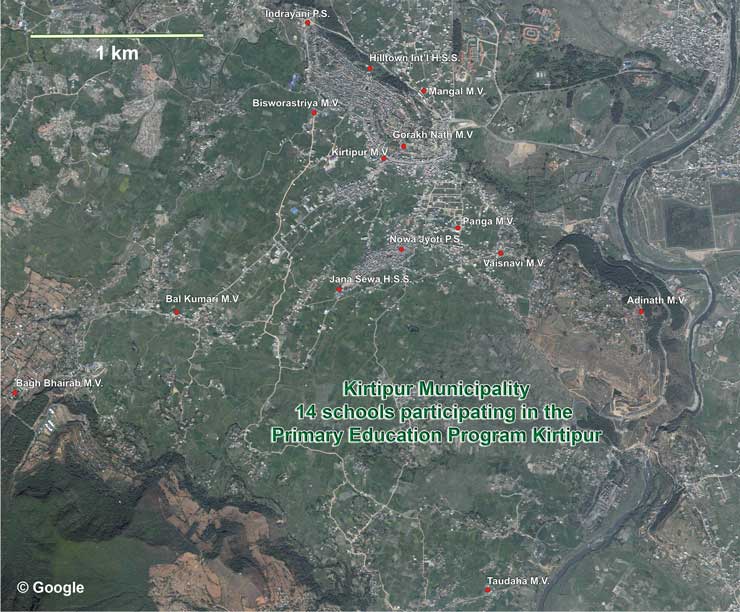The school system of Nepal is increasingly marked by a multitude of commercial private schools. The reason for that seems to be the government concentrates on the payment of the wages for teacher at governmental schools only and thus leaves the responsibility for maintenance of existing schools as well as for investment in school extensions to the very poor communities, the parents and the various sponsors within and outside Nepal. Many communities therefore decided to operate their own non-commercial schools in form of public trusted schools. The Government is not paying wages for the teaching staff of those community schools so the school must raise annual tuition fees. Of course tuition fee of a Community School normally is lower than that of commercial private schools.
The lack of support of the school system by the government not only causes the dilapidation of the building structures and other installations of the schools but also causes a rampant lack of quality education. In so far it is quite understandable that many parents - whenever they can afford - try to send their children to schools with a higher quality level. These are either Public Trusted Community Schools or even to the very expensive commercial Private Schools.
The lack of support of the school system by the government not only causes the dilapidation of the building structures and other installations of the schools but also causes a rampant lack of quality education. In so far it is quite understandable that many parents - whenever they can afford - try to send their children to schools with a higher quality level. These are either Public Trusted Community Schools or even to the very expensive commercial Private Schools.
The concept of NEPALHILFE KIRTIPUR from the very beginning was, to make the best use from its restricted financial framework - considering that the best solution was to allow as many children as possible to attend a school. Therefore the concept initially excludes attendance of commercial private Schools whose annual tuition fee might be 4-5 times higher than the tuition fee of non-commercial schools. The scholarship can only be given for students attending 'Governmental Schools' and 'Public Trusted Community Schools'. The following sketch shows the connections between commercial and non-commercial schools in Nepal :
There is compulsory education in Nepal but no pressure to enrol the children at the age of 6 years to class 1 of Primary level. However the vast majority of the children newly enrolled is 6 years old.(These figures must not let miss the fact that around 30% of all children in Nepal cannot attend a school or at least finish Primary level despite of compulsory education).
The usual age of students in their classes:
Age (Years) | 3 | 4 | 5 | 6 | 7 | 8 | 9 | 10 | 11 | 12 | 13 | 14 | 15 | 16 | 17 |
Class | Early Childhood Develpmt. (ECD) | Nursery | Kinder-garten (KG) | 1*) | 2*) | 3*) | 4*) | 5*) | 6 | 7 | 8 | 9 | 10 | 11 | 12 |
10+2 | |||||||||||||||
*) The Primary Education Program Kirtipur is supporting these classes.
The school system is sub-divided into the following levels:
Pre-primary | Primary | Lower Secondary | Secondary | Higher Secondary (10+2) |
ECD to KG | Classes 1-5 | Classes 6-8 | Classes 9 & 10 | Classes 11 & 12 |
The 55 students of the Primary Education Program are enrolled at 14 schools, widespread over the whole region of the Kirtipur Municipality.

No comments:
Post a Comment